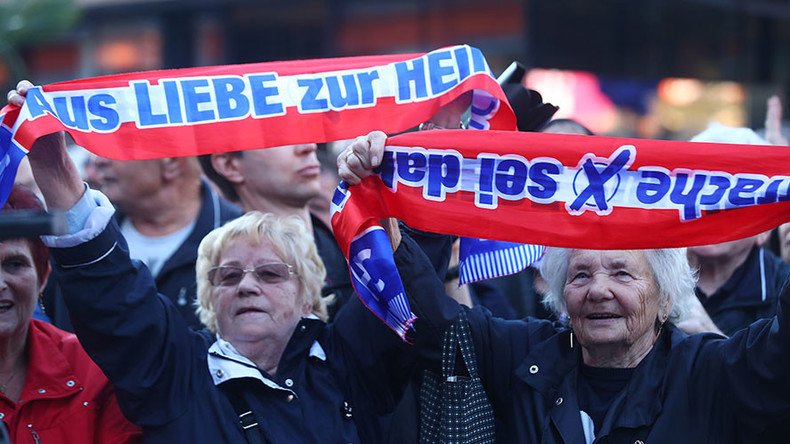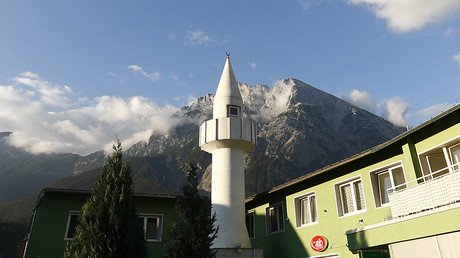Austria votes in snap parliamentary polls, right-wing FPO may propel into coalition govt

Austrians are heading to polling stations in the National Council elections, after which the nationalist Freedom Party may become a part of the coalition government for the first time in history.
Heading into Sunday’s election, the conservative candidate of the Austrian People's Party (OVP), Sebastian Kurz, is leading the polls with Social Democratic Party (SPO) and the right-wing anti-immigrant Freedom Party (FPO) battling to secure second place.
The aspiring 31-year-old Kurz, who has been Austria’s Minister for Foreign Affairs and Integration since 2013, is leading his political campaign along the center-right principles which seem to exploit the refugee issue.
Kurz called for a snap election in May amid tensions with a coalition partner, the SPO. The young politician previously backed plans to block refugee routes into Europe and supported a ban on full-face veils. He also supports cracking down on radical Islam, echoing FPO sentiments and luring in nationalist voters.
Leading FPO candidate Heinz-Christian Strache gained massive support ahead of the election by focusing on the country’s immigration policies and on issues such as unemployment, minimum wage and pensions.
The party, founded by a former Nazi SS member after the end of the World War II, stuck the nerve of the electorate by proposing to stop immigration and by speaking out against Islam.
The FPO support has grown to unprecedented level following EU-wide 'Open Door' migrant policy championed by Germany in wake of 2015 refugee crisis.
While the biggest number of migrants was welcomed by Berlin, Austria has received nearly 150,000 asylum requests since 2015. Comprising just over 1 percent of the population, their presence in the country became the number one debated issue in the election.
READ MORE: Austria calls for another extension to emergency EU border controls
One way or the other, the incumbent chancellor of Austria and chairman of the Social Democratic Party, Christian Kern, stands to lose his place as the head of the government. Unlike his rivals, Kern advocates a much softer stand on migration, instead placing emphasis on employment and the economy.
‘We don't need them’: Austrian FM wants to end Islamic kindergartens to boost integration
A recent survey by Meinungsraum conducted for GMX.at shows that FPO might secure around 28.5 percent of the vote, followed by OVP with 26.5 percent. SPO is expected to attract roughly 20 percent of the vote.
Another poll by Research Affairs/Österreich predicts OVP to secure around 33 percent of the vote. FPO is predicted to come in second with around 27 percent, followed by SPO with 23 percent of the vote.
Town in Austria refuses to accept refugees after 15yo girl 'brutally raped' https://t.co/pzUjhog2hdpic.twitter.com/L0Q6FVSq9Y
— RT (@RT_com) May 19, 2017
Regardless of performance in Sunday's election, the three main parties must work together to form a new coalition government. Neither the OVP nor the SPO has ruled out a coalition with the FPO, which may play the role of the kingmaker at the end of the day since as the revival of OVP/ SPO coalition seems unlikely. Other parties such as the liberal NEOS (The New Austria and Liberal Forum) and the Greens are expected to secure single digits.
In Austria, anyone over the age of 16 is eligible to vote in roughly 13,000 voting locations throughout the Alpine nation. There are about 6.4 million voters, and those who cast their ballots will decide 183 contested seats at the National Council.













